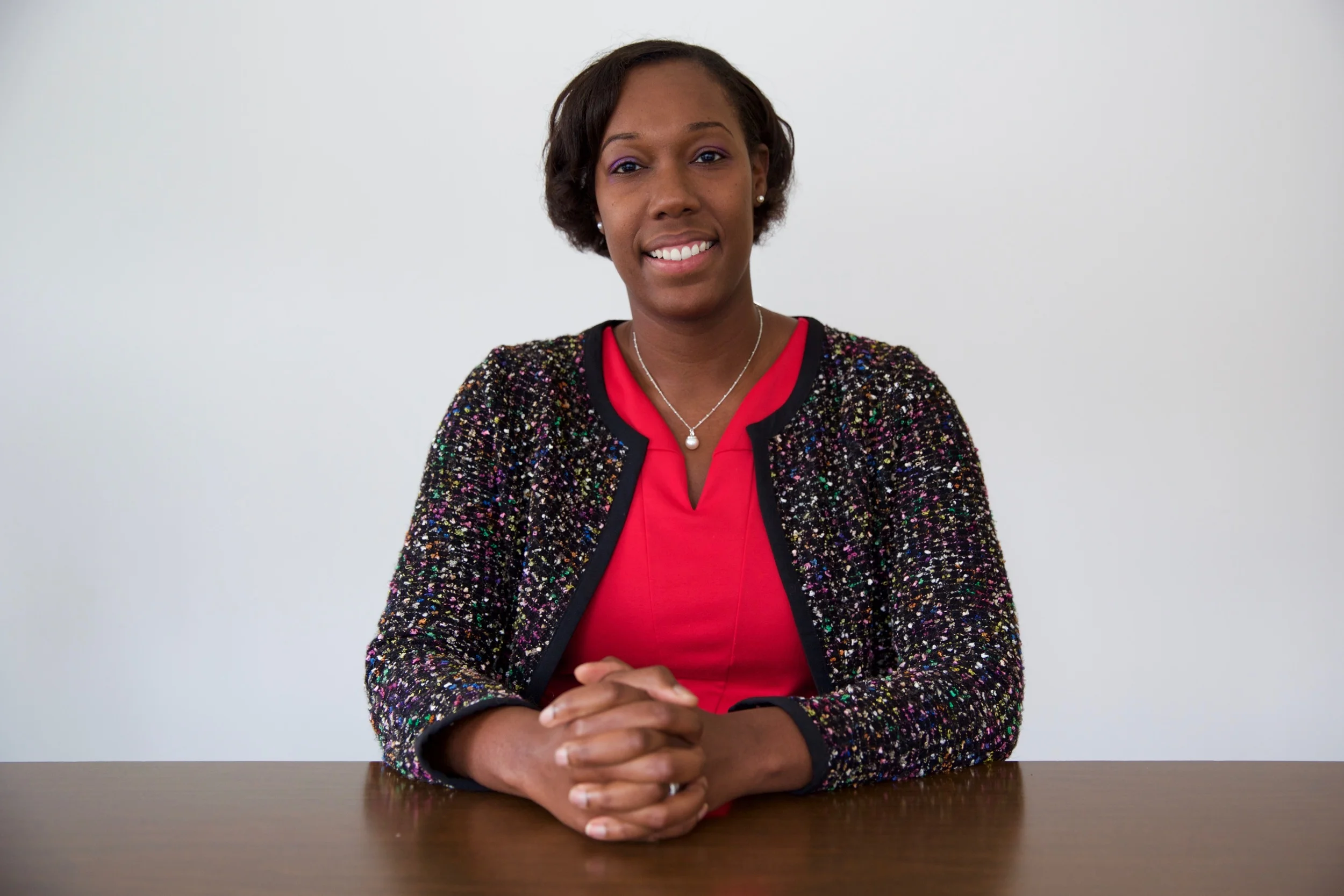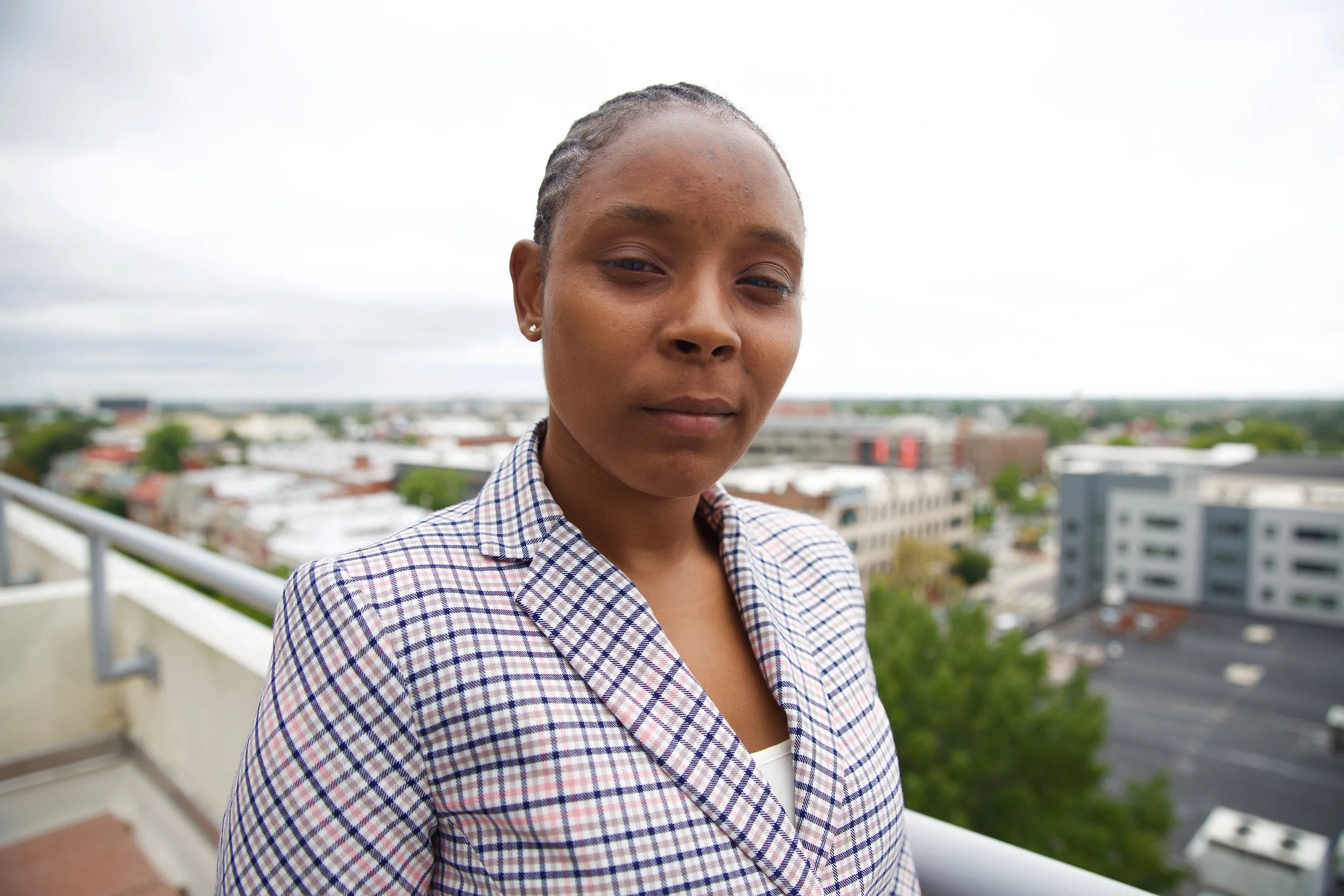Richmond Justice
STORIES + PORTRAITS
Julia | January 22, 2016
Julia Ganzie is a retired United States Postal Service worker and the mother of three children. Her son Marcus was sentenced to life in prison at the age of 17 and is currently incarcerated at Nottoway Correctional Center in Burkeville, Virginia. Since his sentencing, Julia has taken it upon herself to learn as much as she can about the justice system in Virginia. She is on the board of directors of Resource Information Help for the Disadvantaged, a volunteer-run organization advocating for justice reform.
I'm doing everything I can to try to keep myself healthy and alive so I can provide for my son when he gets out. He has been incarcerated since he was a juvenile. He was foolish and young like a lot of us were; wrong place, wrong time. He made a mistake and it was a costly one. I think a lot of people forget that we have all done some things when we were young. We can thank God that we didn't get caught and feel glad that nobody knows about them.
I believe that one day he'll get out. That's the hope I give him to keep him going and not feel there's no reason to live. He's going to have to educate himself and learn how to survive and I want to be there to help him. Every decision I make financially, I have to think of him: where he'll live and how he will handle his finances until he becomes self-sufficient.
I'd like to leave Virginia, but I would not be able to visit him or be involved with the criminal justice system if I lived somewhere else. I can't depend on the media to tell me what's going on. I have to know for myself by staying actively involved. In the twenty-plus years since he was arrested, some family members and most of his friends have gone away. But I remain steady and constant, and that is his encouragement: I will never abandon him no matter what.
“A lot of people have this image of African-American men—that they all come from the hood. Marcus didn’t grow up like that.”
Prison visits are not always granted and are often humiliating. They’ve said that I’m not dressed properly, that my clothing colors are gang related. There is no waiting room, so I wait outside for hours until the inmates are counted, then get a one-hour visit. One time I had to take my dentures out during a search because they thought that maybe something was underneath them. Since my hip replacement I beep when going through the metal detector. If I forget to bring proof of my replacement, I’m not able to visit despite being thoroughly searched.
Mass incarceration of African Americans and minorities is a reality and the truth needs to be told over and over again about this new form of slavery. The sentencing disparities between rich and poor, black and white, affluent and minorities are real.
A lot of people have this image of African American men—that they all come from the hood. Marcus didn't grow up like that. He had a good home life, lived in a middle class working neighborhood, and was raised in a Christian home.
I want the parole board to change the process of determining who gets parole. You cannot look at a crime that was committed 20 or 30 years ago and say, "This is how we determine whether you get out 30 years later." They've got to look at the heart of the man or woman to make that decision. They also need to give the inmate a reasonable goal for freedom.
—interviewed December 5, 2015








